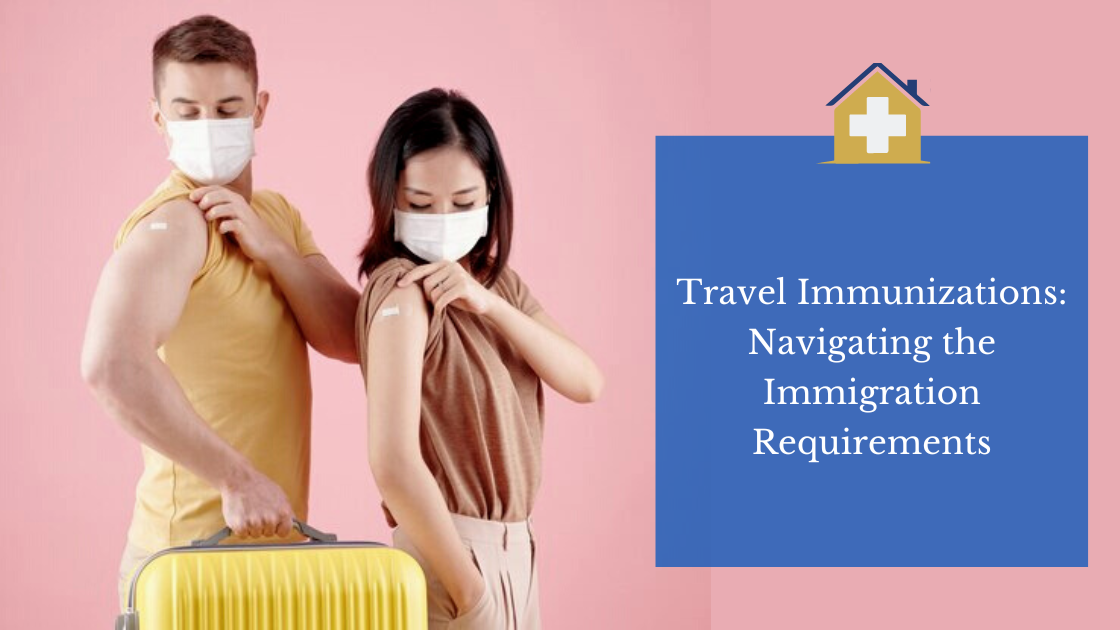


Travel immunization is the administration of vaccines or immunizations to individuals who are planning to travel internationally. Travel immunization is important in protecting the health and well-being of individuals journeying to different parts of the world.
Immunizations play a pivotal role in preventing the spread of infectious diseases, protecting travelers and the communities they visit, and contributing to global health initiatives. This proactive approach shields individuals from potentially severe illnesses and fosters responsible and considerate travel practices.
Continue reading to learn more about travel immunization and vaccines required for immigration.
The specific vaccines required for immigration can vary depending on the destination country's policies. Countries have different immunization requirements based on their public health priorities and the prevalence of certain diseases. According to the CDC, vaccines for the following diseases are required for immigration:
Travel immunizations matter for several compelling reasons, all of which contribute to the health and well-being of individuals during and after their travels. Here are key reasons why travel immunizations are crucial:
Assessing health and risk factors for travel immunization involves comprehensively evaluating individual health, destination-specific risks, and vaccination requirements. Here are steps to determine health and risk factors for travel immunization:
Schedule a pre-travel health consultation with a healthcare professional or travel medicine specialist. This consultation is essential for personalized advice based on your health, travel itinerary, and destination-specific risks.
Provide your healthcare provider with a detailed health history. Discuss any pre-existing medical conditions, allergies, medications, and recent illnesses. Certain health conditions may impact your ability to receive specific vaccines.
Inform your healthcare provider about current medications, including over-the-counter drugs and supplements. Some medicines may interact with vaccines or influence their effectiveness.
Present your current vaccination records to your healthcare provider. Ensure routine vaccinations are up-to-date, and discuss any booster doses that may be needed.
Research the health risks associated with your destination. Consider factors such as endemic diseases, climate-related risks, and specific health concerns relevant to the region you will be visiting.
Check the vaccination requirements of your destination country. Some countries have specific vaccine requirements for entry, and failure to comply may result in denied entry or quarantine measures.
Ensure routine vaccinations, such as measles, mumps, rubella (MMR), diphtheria, tetanus, and pertussis (DTaP or Tdap), are up-to-date. These vaccinations are essential for general health and may be required for travel.
Discuss with your healthcare provider any travel-specific vaccines recommended or required for your destination. Common travel vaccines include yellow fever, typhoid, hepatitis A and B, meningitis, and Japanese encephalitis.
Your primary healthcare provider may be able to supply you with the routine vaccines you require before traveling. However, most primary care practitioners lack the vaccinations necessary for overseas travel. When visiting another nation, a travel clinic is the most excellent location for vaccinations.
Travel medicine professionals examine your schedule with you and give specific advice to help you remain safe. They recommend vaccinations and provide any required shots on-site.